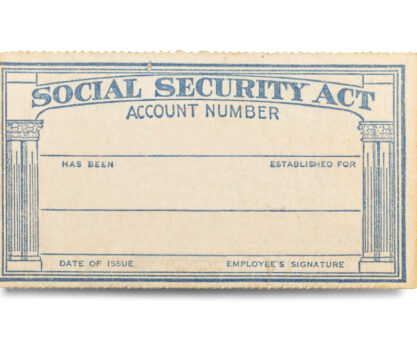When calculating your retirement expenses, it’s crucial to be as accurate as possible. Here are 10 expenses every retirement budget should include.
1. Housing
Your biggest expense in retirement will be what it’s always been during your entire lifetime: housing. With the U.S. in the midst of an affordable housing crisis, you may want to consider downsizing your home and adding the sale proceeds to your retirement nest egg.
2. Healthcare
Although your FEHB coverage is excellent you need to plan for inflation driving up the cost of your prescriptions, premiums, and out-of-pocket expenses over a 30-year retirement.
3. Long-Term Care (LTC) Insurance
Depending on where you live, the average monthly cost of long-term care in a facility is approximately $10,000 per month. Since custodial care is not covered by FEHB or Medicare without LTC insurance the cost is 100% out of pocket.
“Making payments on high-interest credit cards will take a considerable bite out of your retirement budget.”
4. Consumer Debt
It’s been reported that Baby Boomers poised to retire soon carry an average of more than $25,000 in non-mortgage debt. Making payments on high-interest credit cards will take a considerable bite out of your retirement budget.
5. Income Taxes
As much as 90% of your FERS annuity (pension) is subject to income taxes. Add to this, you’ll owe taxes on 100% of your traditional TSP distributions and RMDs. And when your combined income exceeds thresholds established by the IRS, 50% to 85% of your Social Security benefit is taxable as income.
6. Home Maintenance
With a growing number of pre-retirees planning to age in place once they retire, your budget needs to include the cost of maintaining your home over the next 20 to 30 years.
7. Pet Care
From trips to the veterinarian for yearly shots and the cost of pet food, to paying for professional grooming and a pet hotel when you’re on vacation, pet care costs can add up when you’re living on a fixed income.
8. Inflation
Even if inflation simply continues to increase at the historic average of 2% to 3% per year, it can possibly double the income you’ll need to cover your living expenses 20 to 30 years from now.
9. One-Off Expenses
Don’t forget costly one-off expenses like buying a new car, travel costs for vacations, cash gifts, and helping family members through a tough financial time.
10. Longevity
Living longer costs more money. If you assume you’ll only live until age 80, will you have enough income to cover your expenses if you live until 85 or longer?
To learn more, reach out to an FRC® trained advisor.


























